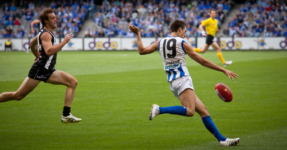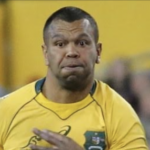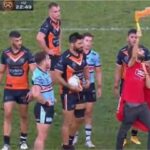Should Football Players Get Compensation for Their Injuries?

More than 60 AFL players who suffered concussion-related injuries while training or playing with the league between 1985 and 14 March, 2023 have lodged a class action against the organisation in the Supreme Court of Victoria.
The players are seeking compensation for pain and suffering, economic loss and medical expenses over their injuries, in a case that has been dubbed as one of the most ‘significant’ class action suits in the history of Australian Sport.
Two class action suits against the AFL
The class action was filed only days after former Western Bulldogs premiership star Liam Picken filed his own claim against the AFL in the same court, seeking compensation from his former club and its doctors over concussions he suffered throughout his career.
Not the first of its kind
Neither the class action nor Picken’s civil suit are the first of this kind against the AFL.
In 2020, former Melbourne player Shaun Smith was awarded $1.4 million in damages after suffering a series of on-field concussions. At the time, Mr Smith made mention of the ‘tough guy’ culture within the sport, which he believed compelled him to ‘shrug off being knocked out.’
Pressures to perform and dangerously competitive cultures that display characteristics of toxic masculinity are something that all professional-level contact sports need to consider. It’s no secret that these arenas can be cut-throat, particularly at the elite level.
Rugby League and American Football
NRL team Newcastle Knights defended a nearly identical claim in its legal battle with James McManus, who sued the club over its handling of his concussions throughout his career.
The former NSW State of Origin player played more than 160 NRL games for the Knights before retiring on medical grounds at the end of the 2015 season.
His claimed in his civil proceedings against the Knights that the club had breached its duty of care through its failure to take action to prevent him from suffering long-lasting injuries.
McManus claimed he had missed out on more than $700,000 in income that would have come later in his career if he had not retired on medical grounds.
He asserted that he should have been warned of the risks of playing when concussed or when he was recovering from concussion, and he was not, and that the club took no steps to prevent him from substantial harm.
At the time, the Knights made a statement saying, “We have never put anyone under pressure to go back on the field were they not approved by the medical staff as being ready to go back on the field….”
“In Newcastle we have a very good screening operation, together with Hunter Area Health for those concussion incidents.”
Personal responsibility
In its defence, the Knights noted the risk to Mr McManus was “obvious” and any claim should be dismissed on that basis.
The inference is, of course, that players bear some responsibility for their choice to make a career out of a contact sport, as well as to play on when injured, and should not blame others for their own live decisions.
The Supreme Court of New South Wales agreed, making a judgment in the club’s favour.
United States
In 2017, around the same time as the McManus case was before the courts, the National Football League (NFL) in the United States was finalising an historic settlement to more than 4500 retired players, for almost $US1 billion, for injuries sustained over their careers.
Repeated calls for reform
Over many years, there have been calls for football administrators to take steps to reduce the risk of players suffering long-term injuries as a result of their employment.
In the NRL, these calls led to the introduction of measures such as ‘the head bin’ to compulsorily take players out of the game when they suffer collisions, even if they wish to continue playing.
Perhaps a more contentious reform is the call for NRL and AFL players to do what the Americans do, and wear helmets or at least make it essential for players to wear headgear.
This is despite the fact there is no definitive scientific evidence that helmets or headgear prevent concussions or long term brain injuries.
Investing in change
In recent days, the NRL and the AFL have announced changes to protocols around concussion, and the AFL has committed $25 million to a long-term study into the effects of concussion and the impact of head trauma.
It is also reportedly fast-tracking the establishment of a compensation scheme that would, in future, benefit players who require it.
Based on the numbers of players now coming forward with significant health issues that are directly related to concussion, the compensation scheme could be a way to avoid long and protracted court battles.
Danger pay is inbuilt
Some might think that the (often staggering) amounts of money these players receive should implicitly remunerate them well enough to ensure they have adequate financial resources at the end of their careers, no matter how short-lived.
A number of weeks ago, it was reported that payments to AFL players increased by $24 million last year, with the average wage around $400,000. On top of these payments, players are also often signed to lucrative sponsorship deals.
However, like any other ‘ordinary’ members of the public, the players are absolutely entitled to seek justice where they believe there has been wrong-doing.
Lifelong impact of head injury
Concussion refers to an injury that affects brain function – usually it is caused by a direct blow to the head, face or neck, but it can be caused by impact to the body.
The impacts of concussions can be severe – presenting as Chronic traumatic encephalopathy (CTE), traumatic brain injury (TBI) and dementia. These are listed in the class action court documents as some of the injuries, along with psychological issues, including depression, post traumatic stress disorder (PTSD) and suicidal ideation.
A coronial Inquest into the death of former Tigers player Shane Tuck who took his own life is yet to be finalised.
An autopsy revealed that Mr Tuck had “severe” CTE which has been linked to changes in behaviour and mood.







